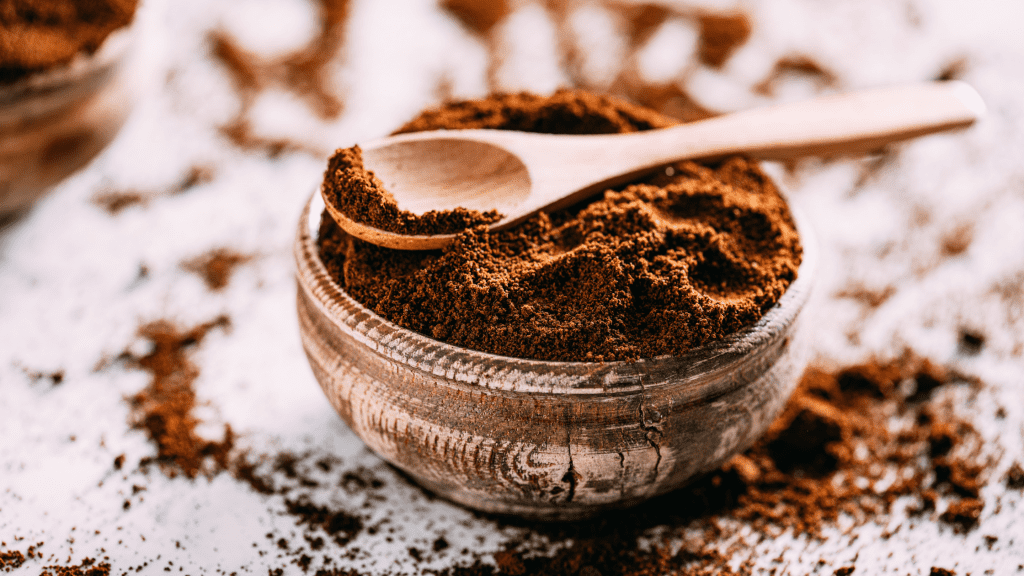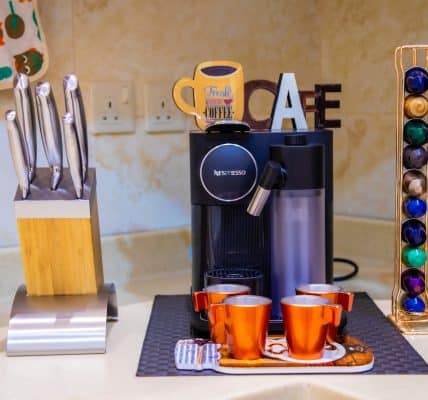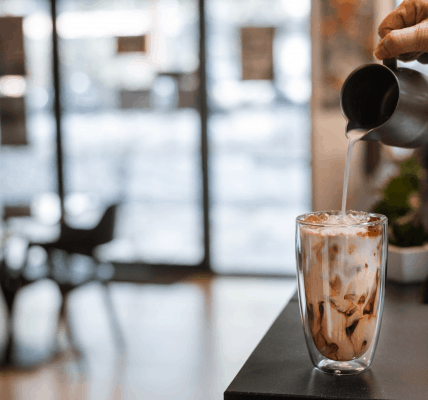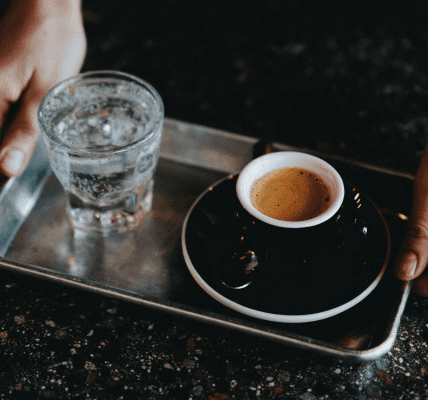
Freezing is a tried and tested way of extending the shelf life of food items. So I understand your desire to freeze coffee beans, grounds, or brew – to keep it fresh for long. But before you do that, you should know why you shouldn’t freeze coffee.
For leftover brew or a stock of beans or grounds that won’t be used soon, freezing is a safe way to conserve flavors. But daily-use coffee will experience drastic fluctuations in temperature and moisture when frozen, defrosted, and refrozen repeatedly. This causes a loss of natural oils and aroma – and the freezer burn taste.
But wait! To freeze or not to freeze coffee remains a debatable subject. And people have their own opinions about it. So find out why and how you can freeze coffee – and when you should fight off the urge to do it.
Is it Safe to Freeze Coffee?
Table of Contents
When it comes to storing consumable items, the primary concern is their safety and shelf life. So, if you’re wondering whether frozen coffee is safe, there’s good news. Freezing extends the shelf life of coffee for a few years past the printed “best before” date.
Frozen coffee beans can stay fresh for 2-3 years past the printed date. And grounds kept in a sealed bag remain in shape for 1-2 years after the best-before date. But the period can reduce significantly if the pack is opened, lasting only 3-5 months.
As for instant coffee powder, it can last indefinitely in the freezer. On the other hand, brewed coffee lasts for 1-2 weeks when frozen. You should know that coffee doesn’t really expire or become poisonous after the expiry date – though its flavors decline.
Why You Should Not Freeze Coffee
The general consensus is that freezing coffee can expose it to moisture and odor, which could mess with its flavors. Plus, when you freeze, thaw, and refreeze daily-use coffee, the essential oils can get spoilt, messing with its taste and odor.
Now there are arguments against these, which intrigued me to do my homework. Here’s everything I found, which convinced me not to freeze coffee beans.
a) Moist Air in Freezers
Freezers are not moist since they are extremely cold at 0 degrees, and cold air holds less vapor. However, this is usually true only in the case of stand-alone freezers because refrigerators with freezers have an exchange of air between the two parts.
Plus, there’s a possibility of temperature changes in freezers when you repeatedly open and close the door for various uses. Both these factors can lead to vapor formation in the freezer, increasing the risk of your coffee getting exposed to moisture.
b) Odor in Freezers
Freezers are considered odor-free because their dry air reduces the initial release of airborne odorants and is less capable of trapping and delivering them. But how often have you opened the freezer door and been repulsed by the smell?
If the freezer temperature crosses 0 F, microbes may thrive there, causing odor due to an unclean freezer and smelly food items. Plus, there’s the risk of freezer burn due to dehydration and oxidation in the excessive cold, leading to a plasticky smell.
c) Loss of Essential Oils Due To Freezing and Thawing
Freezing, defrosting, and refreezing coffee can make significant changes to the placement of essential oils in coffee. This results from the repeated expansion and reduction of the water content in coffee.
Plus, repeated temperature fluctuations can expose coffee to more moisture. And coffee, especially in bean and ground forms, is highly porous and hygroscopic, i.e., prone to absorbing moisture.
Here’s how coffee in different forms survives in the freezer –
- Coffee beans are porous and hygroscopic. And freezing can mess with its structure at a molecular level.
- Coffee grounds are dry and have a greater surface area. They absorb more moisture and odors – and become stale.
- Instant coffee, formed by dehydrating brewed java, lasts the longest in the freezer. But pay attention to clumping.
- Coffee brew can last for a week or two in the freezer. But you’ll hardly get a rich flavor from it when you defrost or reheat it.
But it’s all about proper storage!
The above issues are legitimate concerns. But I also discovered something else. These problems mostly affect coffee when it is poorly stored.
When you freeze coffee in a poorly sealed container, moisture, and odor, get their chances to sneak in and mess with your java. Poor storage of other items, especially smelly ones like fish, can also add stench to the freezer.
The freezer’s conditions also play an important role here. For instance, your coffee will be affected if it becomes warm due to an improper temperature setting or overstuffing.
Why Freezing Coffee Might Be A Good Idea After All
While most people would advise against freezing coffee, the opinions are gradually changing. Experts now believe that the following two reasons are why you should freeze coffee –
a) Even Ground Consistency
Studies have shown that grinding frozen beans is an excellent way to ensure that the beans break into evenly-sized particles. It also helps optimize the fineness of the grounds to prevent over-extracted fine particles or under-extracted boulders.
Over-extraction leads to bitter and acidic java, while under-extraction gives dull flavors. But a homogeneous consistency ensures the same flavorful joy in every cup. This factor only comes into play in the case of beans – and not grounds, brew, or powder.
b) Locked Flavors
The flavors of coffee, especially in bean form, start to fade. But the cold air in the freezer can slow down the release of new smells, as well as the movement of air and airborne particles with odor/aroma molecules, thus locking in the aroma of coffee.
Freezing further delays the rate of staleness, i.e., the rapidness at which any organic ingredient, including coffee, starts to become rancid. Thus, storing coffee properly in the freezer can preserve flavors – though it’s more effective in beans than grounds or brew.
When You Should Freeze Coffee
Clearly, freezing coffee properly can be beneficial in many ways. But that doesn’t mean the arguments against freezing don’t stand. You must judge carefully if it would be right to freeze your coffee.
So when is it a good idea to freeze coffee? You should store your java in the freezer only if you have more beans (or powder) than you can drink any time soon.
It can be a helpful trick if you have purchased a large stock or have received delicious java as a gift. You can also keep a variety of coffee flavors in stock like this – and never have to miss out on an exclusive or limited-edition variety.
So whether you’re a coffee connoisseur or own a coffee shop, storing coffee beans can be helpful in the long run. You can also store grounds in the freezer, though the shelf life will be shorter than beans.
As for freezing leftover coffee brew, the flavors will certainly decline within weeks though you can use it for iced coffee or coffee-flavored snacks, or baked goods. But remember that coffee with milk will go bad within a few hours and make you feel unwell.
Tips for Storing Coffee in Freezer
Now that you know the basics of freezing (and not freezing) coffee, you must understand how to store joe in the freezer. Here’s what I try to keep in mind if I ever want to freeze coffee –
a) Use Air-Tight Containers.
Store your coffee in an air-tight container, like the original pack (with the seal intact) or a vacuum seal bag with a valve. Another nifty method is using a mason jar and sealing it with a Foodsaver vacuum sealer designed to seal mason jars.
b) Divide Into Small Portions.
One way to freeze regular-use coffee is to store it in small batches, sufficient for single use. That way, you can only bring out as much as you need from the freezer while the rest of the frozen coffee isn’t disturbed.
For instance, a standard cup of joe has 2 tsp of grounds, for which you need around 2.5 tbsp of beans. So, plan each batch size according to the coffee you need. It’s also a good idea to freeze brew in covered ice cubes so you can use individual cubes.
c) Keep It Deep Inside.
While freezing coffee, keep the container away from the door. That way, it will be less exposed to temperature fluctuations when you open and close the door to get other food items. This will minimize condensation and vapor formation.
d) Freeze Right Away.
The longer your coffee remains exposed to air contact, the more prone it will be to oxidation. This is especially true after the beans have been roasted and ground or you’ve made your brew. So don’t waste time – and freeze your coffee right away.
e) Let Coffee Sit – and Don’t Refreeze.
As you have already understood, repeated exposure to fluctuating temperature and moisture levels can be harmful to your coffee. So, once you freeze your coffee, don’t keep moving your coffee in and out of the freezer.
Store your coffee in a sealed container – and keep it frozen until the time to thaw and use it arrives. Once thawed, don’t refreeze the coffee. So make sure only to pull out enough coffee that you will consume or use – and leave the rest untouched.
How to Defrost Coffee
If you have frozen coffee, the obvious next step is to defrost it. There are many opinions and ways of defrosting coffee. I’ll analyze them individually for you.
Let’s talk about beans first.
Interestingly, many people say that thawing or defrosting coffee beans is not necessary – and that you can directly grind frozen beans. I like to defrost beans first, as frozen beans are harder. So I looked into why some coffee lovers prefer not to defrost beans.
One of the reasons is that grinding frozen beans produces finer grains. But there’s another reason: many people complain about wet beans after defrosting. This happens when you don’t know the right steps for defrosting.
So here are the do’s and don’ts I follow for defrosting coffee –
- After removing the beans from the freezer, wait to unseal the container. Otherwise, the beans will be exposed to air, humidity, and heat while it sits out, defrosting. This will cause rapid deterioration of the flavors.
- Let the sealed container of the beans sit out of the freezer for 24 hours or overnight. I usually place them in the fridge for a cool and dry environment while thawing. But you can do it at room temperature if you don’t live in a warm region.
- Be patient with good coffee – and don’t hurry the process by thawing the frozen beans in the microwave oven, air fryer, or hot water. While your beans won’t go bad if you speed-thaw them, the heat will surely impact the flavors.
- If you’re in a hurry and can’t afford a slow defrosting process, put the container of beans in the microwave and heat it for no more than 30 seconds. But make sure to give them 10-second bursts at intervals of a few seconds.
- Grinding frozen beans isn’t a strict no-no – but a little harder to deal with. So your grinder will have to work a little harder to break the beans to give you consistently fine grounds. The amount of beans will be the same as defrosted beans.
- After opening the sealed container, use them immediately to reduce unnecessary exposure to oxygen, heat, light, and moisture.
Once the grounds are ready, they are ready to go into your heater – or into a sealed container to be stored right away. You can freeze the grounds – and defrost them before use in the same way as thawing beans.
What about defrosting grounds and powder?
Allow frozen grounds to sit out for several hours in a sealed container. And open the seal only after it has thawed. Use the grounds right away to make your delicious brew.
Freezing and defrosting instant coffee powder is the easiest of all, as it has the longest shelf life. Defrost the powder in the same way as you would defrost grounds!
Finally, let’s talk about defrosting frozen brew.
You may think thawing brew cubes by microwaving or reheating is a good idea. However, this is neither necessary nor recommended. That’s because reheating or microwaving can hamper the flavors of the brew.
You can put the frozen cubes in your drink with water, milk, or other additives – and the cubes will melt on their own. I recommend not heating brew cubes right after pulling them out of the freezer. Let them melt in the fridge first.
Final Words
There are plenty of reasons why you shouldn’t freeze coffee – and why it’s a good idea to store coffee in the freezer. Freezing has its downsides, but these can be avoided.
So pay attention to proper storage and avoid repeated thawing and refreezing. That way, you can keep a healthy stock of coffee in the freezer for long-term use – and never have to run out of flavorful java again!



